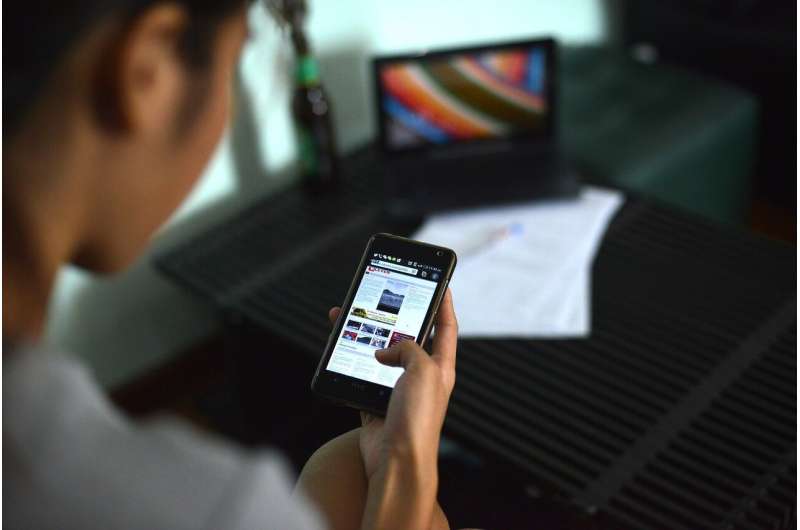
In a recent study examining the accuracy of self-estimation in evaluating technology use, researchers analyzed data from more than 300 iPhone users in China. The findings indicate a moderate correlation between self-reported usage and actual screen time. However, a notable finding is that the longer individuals engage with social media or smartphones, the less accurate their self-reporting of use becomes.
Self-estimation refers to an individual’s subjective assessment or perception of their behavior. In the present study, published in the International Journal of Mobile Communications, it refers specifically to the use of smartphones and social media.
Gefei Li and Jialong Li of Waseda University in Tokyo, Japan and E. Qinyu of the University of Shanghai for Science and Technology and Xia Li of Shanghai Jiaotong University in Shanghai, China, have examined the psychological factors influencing the precision of recall of smartphone and social media use.
The team found that loneliness is one factor that correlates with discrepancies in estimating social media use, suggesting that the lonelier an individual feels, the more they overestimate their use. Conversely, those who reported greater life satisfaction were less likely to underreport their actual smartphone use. Fundamentally, the study suggests that as individuals spend more time on smartphones and social media, the reliability of their self-reporting of how long they spend on them diminishes.
The team suggests that one practical implication of these findings is that researchers should be questioning the adequacy of traditional self-reporting measures for assessing how much we use these digital technologies.
The team recommends a standardized time perception approach, which could challenge the common practice of subjective time measurement in studying behavior. The researchers also introduce the concept of “screen time,” which could be used to provide a more accurate measure of smartphone usage and so mitigate underreporting. This tool could offer valuable data for researchers studying the impacts of digital technology use on our digital habits.
The findings and implications of this study may well extend beyond the immediate results, suggesting that screen time reports could be a valuable resource for researchers in communication studies, cognitive psychology, and neuropsychology. By adopting a more precise measurement approach, researchers might gain a deeper understanding of the implications of digital technology use on our lives or at the very least glean more accurate data than self-estimation might offer so that future studies can give us clearer results.
More information:
Gefei Li et al, What influences our recall of the use of social media and smartphones An exploratory study based on a sample of Chinese iPhone users, International Journal of Mobile Communications (2023). DOI: 10.1504/IJMC.2024.135696
Citation:
The accuracy of self-estimation in evaluating technology use (2024, January 5)
retrieved 6 January 2024
from https://phys.org/news/2024-01-accuracy-technology.html
This document is subject to copyright. Apart from any fair dealing for the purpose of private study or research, no
part may be reproduced without the written permission. The content is provided for information purposes only.

